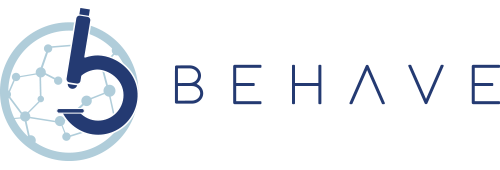 Dr. Simone Gabbriellini (GECS-University of Brescia & Data Scientist and CEO @ Manent.AI will talk on “Network effects on tax compliance: An agent-based model” at a SPS-BEHAVE workshop on 20 May 2019 at 12.30, Seminar Room, Department of Social and Political Science, University of Milan, Via Conservatorio 7. The paper is co-authored with Flaminio Squazzoni (University of Milan), Rosella Levaggi and Francesco Menoncin (University of Brescia). Abstract and keywords of the paper are below.
Dr. Simone Gabbriellini (GECS-University of Brescia & Data Scientist and CEO @ Manent.AI will talk on “Network effects on tax compliance: An agent-based model” at a SPS-BEHAVE workshop on 20 May 2019 at 12.30, Seminar Room, Department of Social and Political Science, University of Milan, Via Conservatorio 7. The paper is co-authored with Flaminio Squazzoni (University of Milan), Rosella Levaggi and Francesco Menoncin (University of Brescia). Abstract and keywords of the paper are below.
Simone is an agent-based modeller and data scientist with strong background in sociology and political sciences. He has a BA+MA in Political Sciences from the University of Pisa and a PhD in “History and Sociology of Modernity”, from the University of Pisa. He has been post-doc at the GEMASS, CNRS & Paris-Sorbonne. He is one of the faculty members of the BEHAVE Summer School in Agent-Based Modelling.
Among his most recent and relevant publications:
Complex contagions and the diffusion of innovations: Evidence from a small-N study (co-authors: Gianluca Manzo, Valentine Roux and Freda Nkirote M’Mbogori), Journal of Archaeological Method and Theory, 2018, 25(4), 1109-1154, available here.
History, histories and book trade networks: An exploratory Agent-Based Model (co-author Edmund Chattoe-Brown), in Historical Networks in the Book Trade, Catherine Feely, John Hinks (Eds.), 2016, Routledge, London, 55-75.
The evolution of Online Forums as Communication Networks: An Agent-Based Model, Revue Française de Sociologie, 2014/4 (Vol. 55), 805-826, full text available here.
Status and Participation in Online Task Groups: an Agent-Based Model, in Analytical Sociology: Actions and Networks, Gianluca Manzo (Ed), 2014, Wiley and Sons, Chichester.
Abstract. Tax evasion is a significant component of nearly all modern tax systems and a serious concern for policy makers in advanced and transition economies. It threatens government revenues by affecting the quality and sustainability of public and social services for all citizens, including especially those who regularly report their income and those under the poverty line who depend more on these services. It has dramatic implications on economic investments and contributes to perpetuate social and economic inequality, not to mention the direct erosion on the credibility of public institutions and the indirect weakening of the moral foundations of the social fabric. Recent reports showed that intentional under-reporting of income is about 18–19% of the total reported income in the US, leading to a loss of about 500 billion USD, while the level of tax evasion in Europe is about 20 percent of GDP, accounting for a potential loss of about €1 trillion each year. In Italy, recent estimates from the Ministry of Economics and Finance said that unpaid taxes were about €270 billion, i.e., about 17% of GDP. To fight this problem, national governments are trying to increase the efficiency and efficacy of audits by collecting more detailed information on taxpayers from a variety of sources, as well as using creative “nudge” experiments to trigger moral instincts and social motivations of taxpayers. However, understanding the economic and social determinants of tax compliance and evasion is difficult due to lack of fine-grained data on individual strategies and the social context in which behaviour is determined. Here, we aimed to fill this gap by building an agent-based model by integrating behavioral and sociological findings into an economic model of tax evasion (Levaggi2012, Levaggi2013, Levaggi2016). We aimed to relax certain previous assumptions, e.g., full rationality and the representative agent, by adding more realism to the model and estimate the impact of network effects on taxpayer decisions. Given that for the taxpayer, deciding how much to evade is subject to uncertainty and also subjectively influenced by risk propensity and previous experience, we assumed that taxpayers used their networks to estimate a satisfacing level of evasion given certain characteristics of their contacts. To capture these complexities, we we modelled a population of heterogeneous individual agents representing professionals and their web of contacts and assumed certain probabilities of auditing. We manipulated the network topologies, so modifying the sources of information used by professionals to determine their optimal level of evasion, We found that ceteris paribus certain social networks among professionals make tax evasion more probable and resilient against auditing. Our results indicate the need for improving the quality of information used by public autorithies to fight tax evasion by exploiting the idea of social embeddedness.
Keywords: Tax evasion; Social Networks; Professionals; Agent-Based Models; Social Embeddedness

